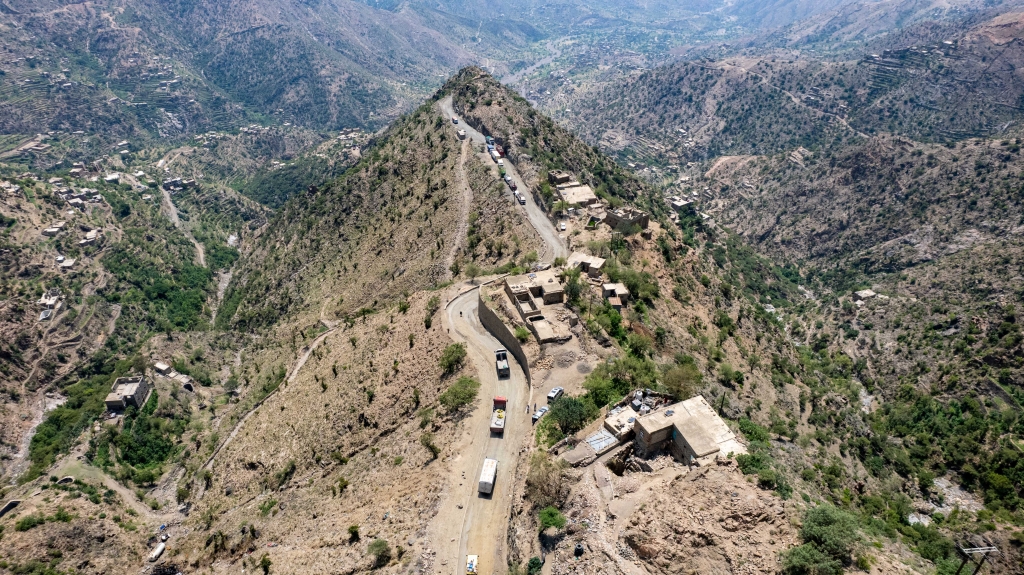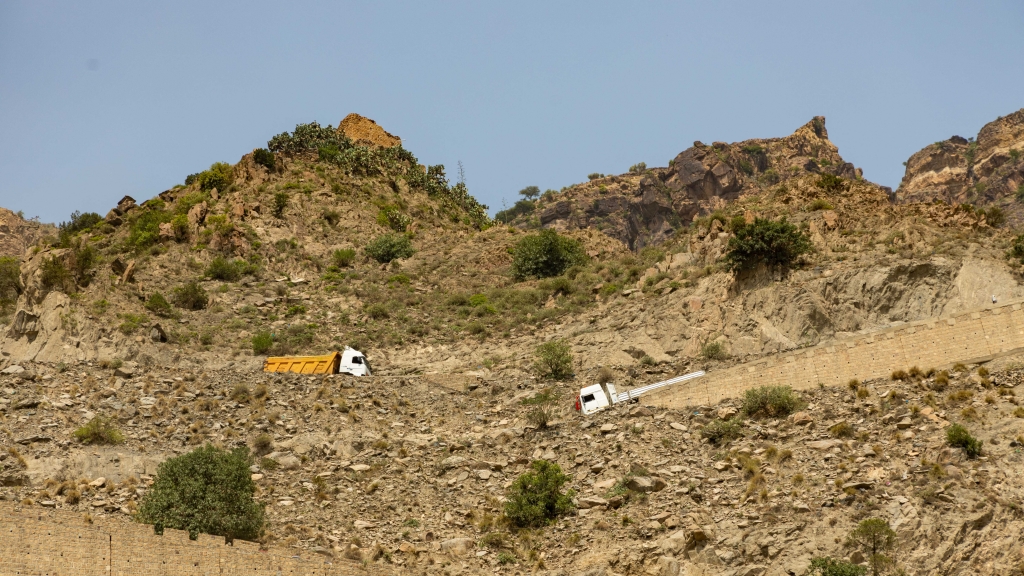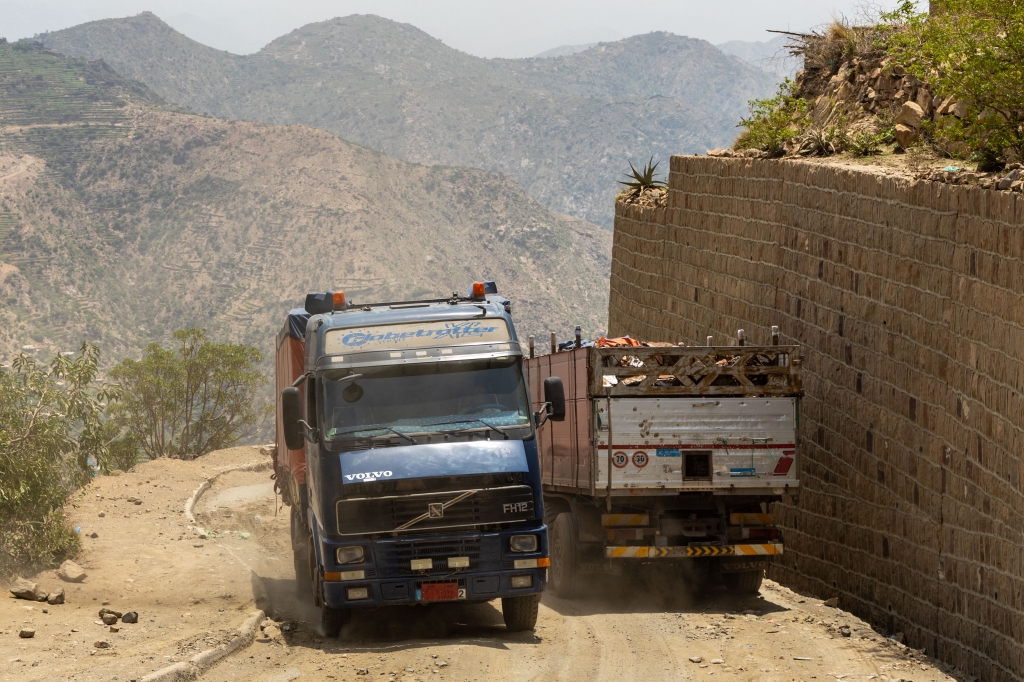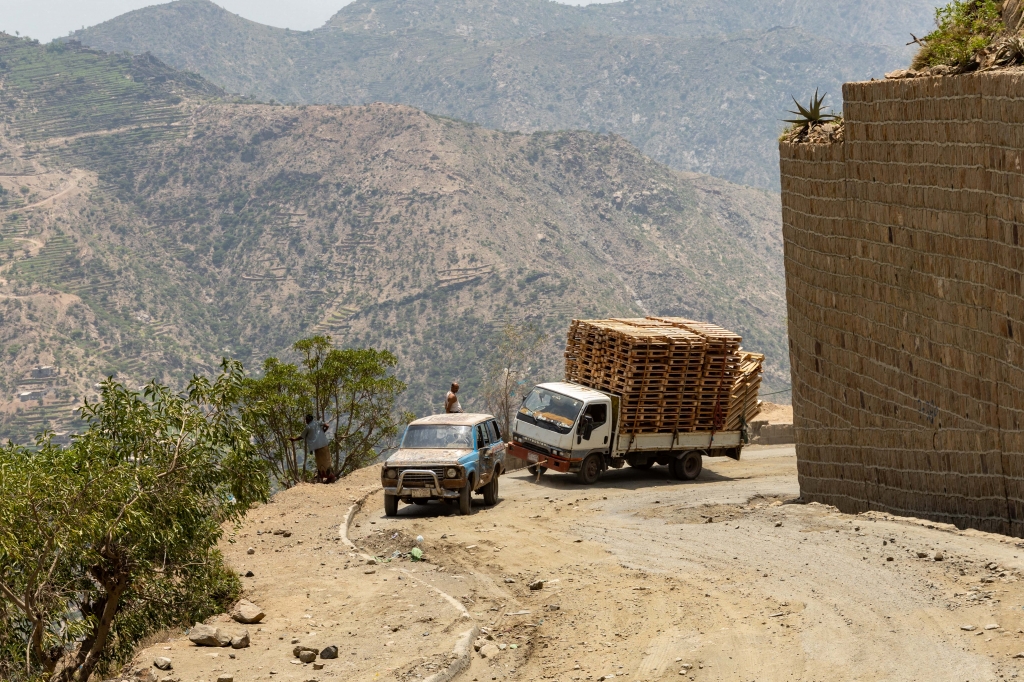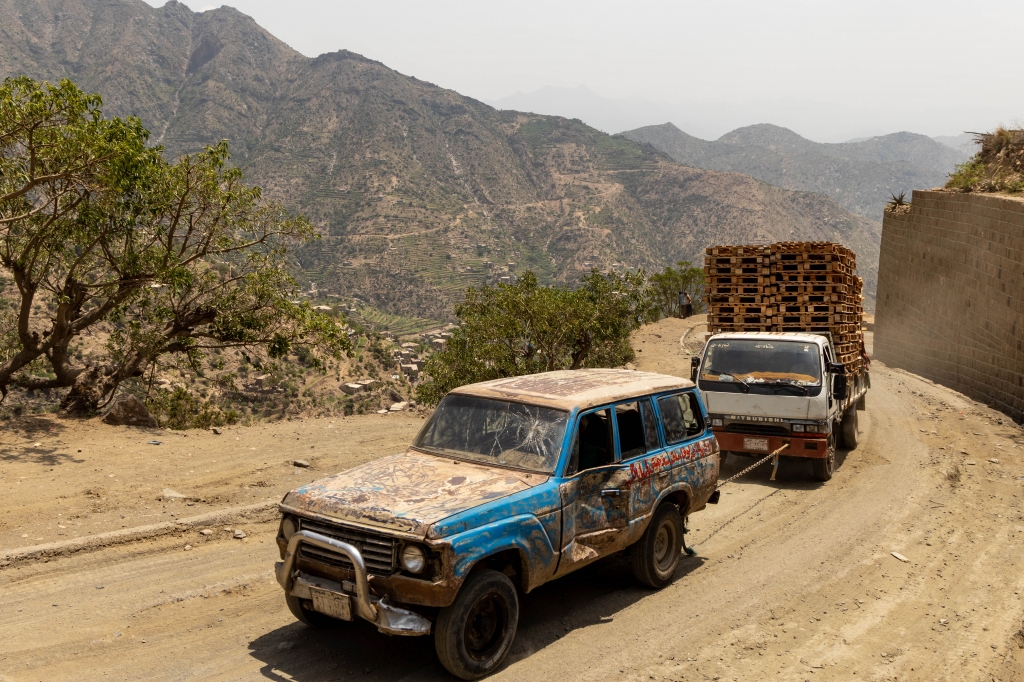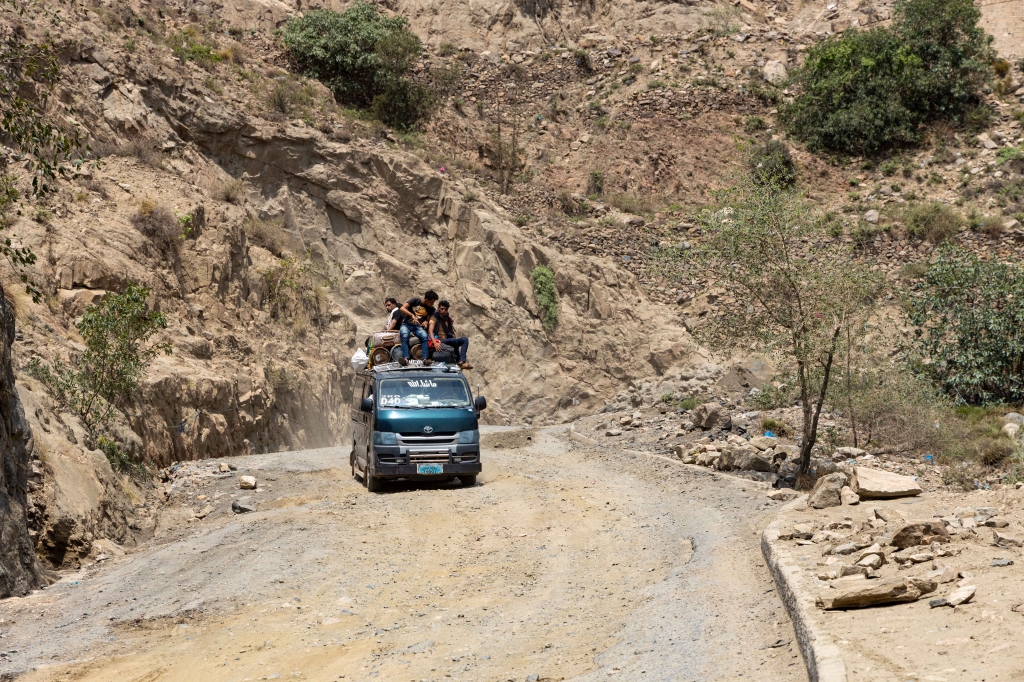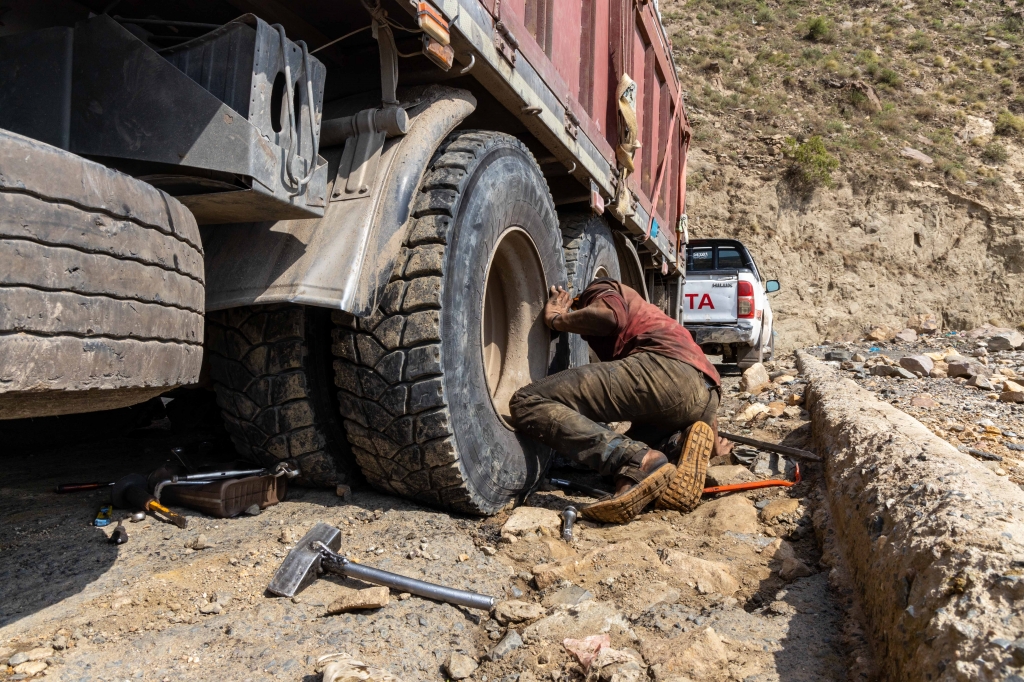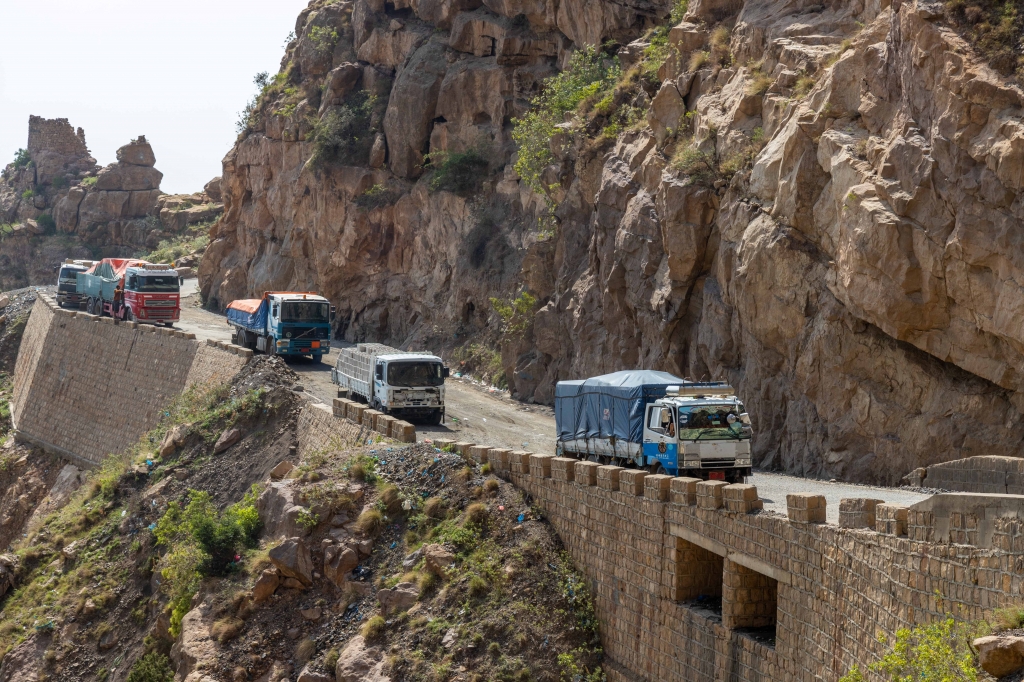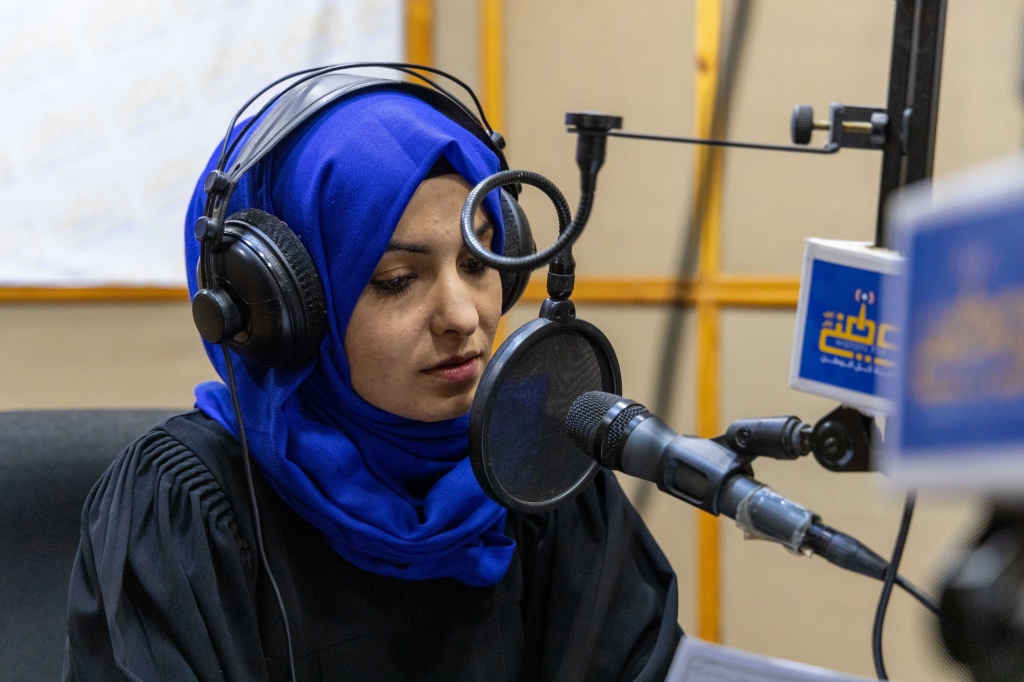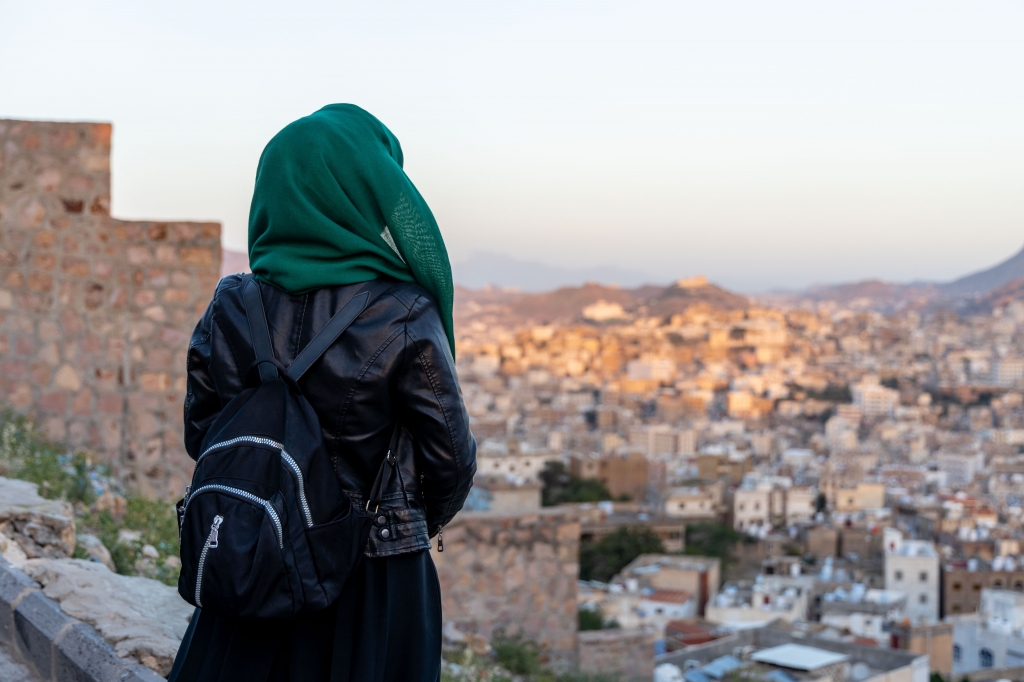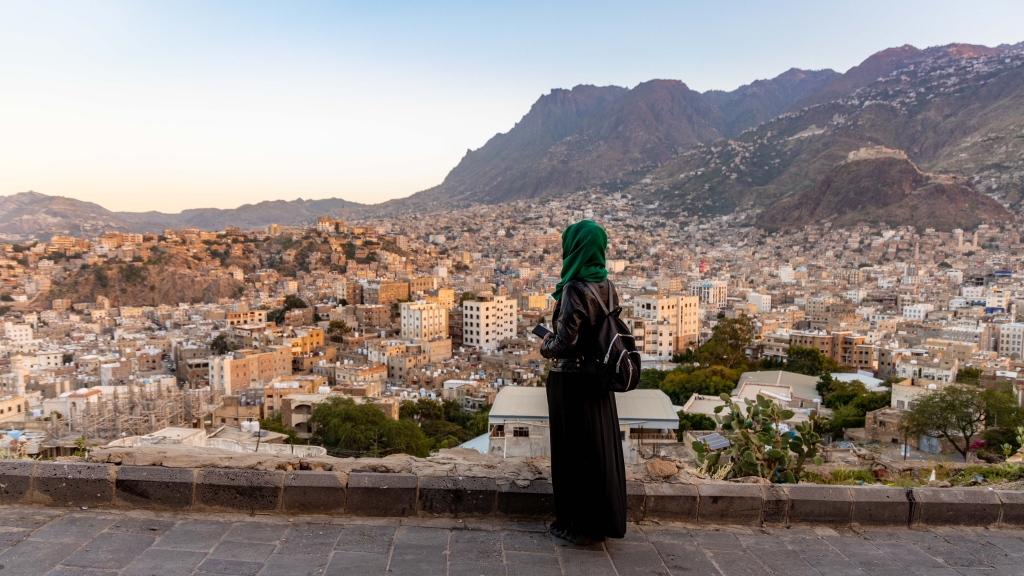A city under siege: the realities of Yemen’s war in Taiz
War in Yemen has had a dramatic impact on every aspect of people’s lives. For eight years, people in Taiz like Maeen and Ramzi have been unable to see their families or access essential healthcare, goods and services. We worked with Yemeni filmmaker and photographer Albaraa Mansoor to produce this moving documentary and photostory.
The road of death
The conflict in Yemen has split the city of Taiz in half. Main roads have been closed throughout Yemen’s third-largest city since 2015 by Ansar Allah (Houthi rebel forces). People who need to travel from one side of the city to the other have to take dangerous mountain roads and journeys that would have taken 15 minutes now take more than eight hours.
The knock-on effects on people who live in Taiz are severe. Very ill patients sometimes die as they are unable to travel for treatment. Prices of goods and services have more than doubled since the siege began, exponentially pushing up people’s cost of living. Operational costs of businesses and city infrastructure have also increased – including for hospitals that regularly rely on fuel-run generators to power lifesaving equipment.
The siege has isolated people in Taiz from one other and cut them off from neighbouring cities. Roads connecting Taiz with the interim capital of Aden are closed, this has severely restricted the transport of essential goods and materials. It has forced traffic onto dilapidated mountain roads such as Haijat Al-Abed – known as ‘the road of death’.
“The issue of the roads is a political decision”
Maeen Al-Obeidi is an attorney and peace mediator in Taiz. She negotiated an agreement between the two conflicting parties Ansar Allah and the internationally recognised government of Taiz for people to access water.
“Eight years ago, when the war broke out, water was cut off in Taiz because the water wells were under the control of the other party. Movement between districts and regions has become very difficult. It means that many people suffer.
The city struggles with water scarcity – we only have a group of emergency wells that existed before the war. These were not functional, so we informed Ansar Allah that we want to see water pumped to benefit the people. The mediation was successful. We brought together the two water corporations: they sat together and worked out a plan. Changes began within the city. Wells – even those with few capabilities – began to pump into reservoirs and to neighbourhoods that had not had water for eight years.
All of this changed our priorities – even as people working in society as activists. How can we return the water? How can services be returned? How is it possible to open a road to the garbage dump? How can we get governmental electricity again? How can holes be filled in the streets? These are very simple things that we have to think about.”

Maeen looks at the borders separating the governments of Sana'a and Aden in the city of Taiz.
“I cannot provide money for my family”
Youssef Atta sells food and spices in the old market of Al-Shenini. For six years, Youssef was separated from his family: they live in the same city – just a few kilometres away from each other – but the war made travel between them extremely difficult.
“Taiz is described as the capital of culture, science and construction. Most of the doctors [in Yemen] are from Taiz. Most of the engineers are from Taiz, most of the media are from Taiz. Before the war, Taiz was a flame of education. In the past, the streets were crowded with people and cars. But it’s become empty since the war.
The situation before was very good. We were comfortable. I used to sell potatoes, onions and garlic. We had a farm and livestock. We lived in peace and comfort. The war changed everything inside the city. I spent two years without seeing my children. The income has become low and we are on the verge of poverty. I cannot provide money for my family sometimes. I used to buy chicken every day, now I buy half a chicken every two or three weeks.
This is not a punishment for those who are responsible [for the war] – this is a punishment for the people. All of this affects the citizens only.”

Youssef Atta looks at his home from Saber Mountain. He has been forced to leave his home and his family for years as a result of the war and the siege.
“Patients die at home because they are unable to move to treatment centres”
Rajeh Al-Mulaiki, Director of the Taiz health office, describes the impact the road closures have had on the city’s health sector.
“About 40 to 50 per cent of kidney failure patients who frequent dialysis centres in Taiz governorate come from areas outside the city. Patient transportation prices have increased by nearly three to four hundred per cent. Before it cost a patient seven to eight dollars in transportation. They are now losing 70, 80, 100 dollars to reach the dialysis centre. There are also additional medicines that the patient must buy. These used to cost about ten to 15 dollars per month. Now they cost between 400 to 500 dollars per month.
There are patients that die on the way to treatment centres in Taiz. There are other patients that die at home because they are unable to move. This is all because of what? Because of the siege imposed on the city.
Taiz has been deprived of some equipment – such as for CT scans and MRI equipment – because there is no suitable road to transport these large pieces of equipment and because this equipment is transported by large trucks.”

Travellers and drivers sometimes sleep on the street to start their arduous journey every morning with the rising of the sun, as it is forbidden to travel in the evening and move in or out the city.
“Lift the siege, the people are tired”
Ramzi Saeed (left) and his wife both have serious medical conditions. For treatment they must travel to Al-Amal Hospital – 800 metres away from their home – but, as their neighbourhood is under the control of Ansar Allah, they cannot easily reach the hospital. Their only route is through the mountains, which can take anywhere between five and eight hours on a bumpy and dangerous mountain road.
“My name is Ramzi Saeed Abdullah Al-Mikhlafi. I am 45-years-old. My wife has breast cancer. I have kidney and bladder cancer. The biggest concern is the road [to get to the hospital]. Before, we would rent a car for 10,000 riyals for a round trip. Now it costs 200,000 which is difficult for me pay. I try to travel with other passengers – and the cars become congested, and my wife gets tired because she has diabetes and high blood pressure. I have urine retention, so I need to stop the car – and people get tired with me in addition to the hardship of the road and the delay. I arrive exhausted.
Before the war, [the journey to the hospital] took between 20 and 30 minutes. Now, we have to leave at six in the morning – they do not travel at night because the road is mountainous and difficult. When we do an MRI it can take five or six days. It is a financial burden.
The price of one sack of flour (50 kilos) is about 42,000 thousand riyals, it was only 7,000 before. Lunch used to cost no more than 2,000 riyals for half a piece of chicken with rice. Now I swear that 50,000 a day is not enough.
I wish for God Almighty to heal my wife and me, end the war, lift the siege, and return Yemen to as safe as it was. My message to those who caused this: lift the siege, the people are tired.”

Ramzi Saeed and his wife on their way to Al-Amal hospital, via the bumpy mountain road, for chemotherapy treatment.
“How can I study when I am not safe?”
Hind Al-Mujahid is a graduate of the Department of Media at Taiz University. The siege took a toll on her wellbeing and separated her from her family – making her studies challenging.
“If you want to study or attend university, you have to move to the city. How can I enter a place in which my family feel that I am unsafe while war is still ongoing? Where do I live?
I tried to live with girls [in university housing], but I could not bear it at all... I was forced every time to be that girl who returns [home] to cry and to feel oppressed. I tried once, twice, three times. My love for studying did not let me stop completely. I reached a stage where I hated studying. My psychological comfort is important and how can I study when I am basically not safe and unable to focus on my studies? My family was not able to attend my graduation. I felt that it was a day of sadness more than a day of joy.
[Now] I live here in the city. I started to work for Watani FM Radio station. I felt that they were my second family here in Taiz. I proved myself to some extent until I worked as a broadcaster and at the same time I was teaching at the university. Then I went to a media organisation and worked as a broadcaster, I’m still working there now.
Travelling is still stressful for me to visit my family. Either I live here and miss my family, or I have to visit them. After every trip I suffer from chest pain, allergies and illness for at least three months because of the road and endless dust. What separates me from my family was previously about 15 or 20 minutes, now it’s about nine to ten hours.
Taiz means a lot to us. You feel that the love of Taiz runs through our veins. We now have one wish, which is to move away from Taiz and not return unless life has improved to what it was before.”
All photos and videos in this documentary ©Saferworld/Albaraa Mansoor.

